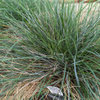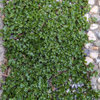Gold bond medicated powder?
Klippenwald
12 years ago
Related Stories

KITCHEN DESIGNKitchen Color: 7 Sensational Yellow Backsplashes
Warm up a white kitchen or add some zing to wood tones with a backsplash that glows
Full Story
TRIMWhat Color Should You Paint Your Trim?
Learn the benefits of painting your trim white, black, neutral, a bold color and more
Full Story
REMODELING GUIDESYou Won't Believe What These Homeowners Found in Their Walls
From the banal to the downright bizarre, these uncovered artifacts may get you wondering what may be hidden in your own home
Full Story
MOST POPULAR33 Magic Household Cleaning Tips
Houzzers from around the world share their tips for transforming housework into child’s play
Full Story
TILEHow to Choose the Right Tile Layout
Brick, stacked, mosaic and more — get to know the most popular tile layouts and see which one is best for your room
Full Story
COLOR10 Pair-Ups for Black in the Kitchen
Combine black with other colors to add drama, polish and modernity. It also can make a kitchen look more spacious
Full Story
SMALL SPACES10 Tips for Chic Little Bathrooms
Get more visual appeal and storage in less space, following the lead of these stylish compact bathrooms
Full Story
BATHROOM COLOR8 Ways to Spruce Up an Older Bathroom (Without Remodeling)
Mint tiles got you feeling blue? Don’t demolish — distract the eye by updating small details
Full Story
BATHROOM WORKBOOK12 Ways to Get a Luxe Bathroom Look for Less
Your budget bathroom can have a high-end feel with the right tile, stone, vanity and accessories
Full Story
REMODELING GUIDESRoom of the Day: Brass Warms a Brownstone Bathroom
Forget trends. This owner chose unlacquered brass and repurposed pieces for love alone
Full StoryMore Discussions









rhizo_1 (North AL) zone 7
KlippenwaldOriginal Author
Related Professionals
Norfolk Landscape Architects & Landscape Designers · Cottonwood Landscape Architects & Landscape Designers · Newcastle Landscape Architects & Landscape Designers · Jackson Landscape Contractors · Peabody Landscape Contractors · Dinuba Landscape Contractors · Fort Atkinson Landscape Contractors · Goodlettsville Landscape Contractors · Live Oak Landscape Contractors · Lynn Landscape Contractors · Newnan Landscape Contractors · North Chicago Landscape Contractors · Pine Hills Landscape Contractors · Pompano Beach Landscape Contractors · Jericho Stone, Pavers & ConcreteKimmsr
rhizo_1 (North AL) zone 7
Kimmsr
KlippenwaldOriginal Author
rhizo_1 (North AL) zone 7
Kimmsr
ronalawn82
rhizo_1 (North AL) zone 7